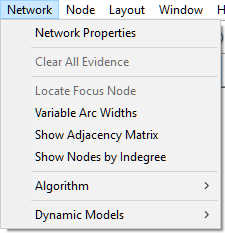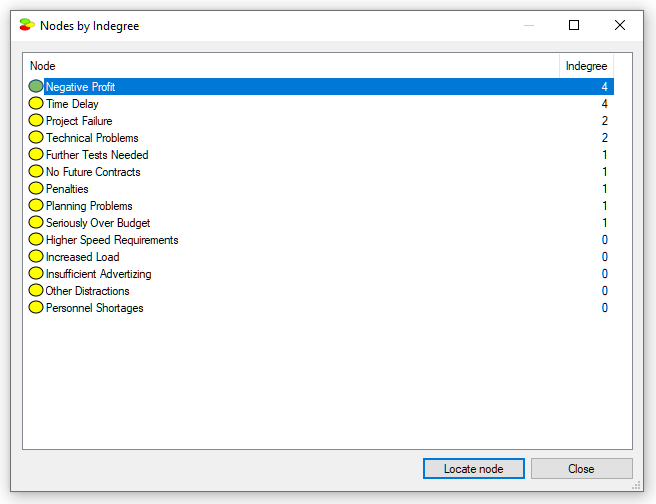Probabilistic inference is worst-case NP-hard, which is a Computer Science term for problems that are possibly unsolvable with limited resources. When constructing models, you may encounter a situation in which the model becomes too complex for inference (QGeNIe will generally warn you about this in the Output Window).
Problems with inference are typically caused by the complexity of connections in the graph. While it is hard to control complexity of connections, there is one way that it can be kept reasonably low - making sure that nodes do not have too many parents. QGeNIe will warn you when you add more than 20 parents to a node but will not forbid you doing so. Nodes with fewer than 20 parents can also lead to difficulties with inference. There is also a dialog that allows you to view nodes by their number of parents (this is called in the literature indegree). Choosing Show Nodes by Indegree from the Network Menu:

shows the following dialog:

The user can get an idea which families (nodes and their parents) can give possible problems with inference. Reducing the number of parents of those nodes that have the highest indegree can help with making inference more efficient. To visit a node from the list in the Graph View, please double click on the node or select on the list and press the Locate node button.